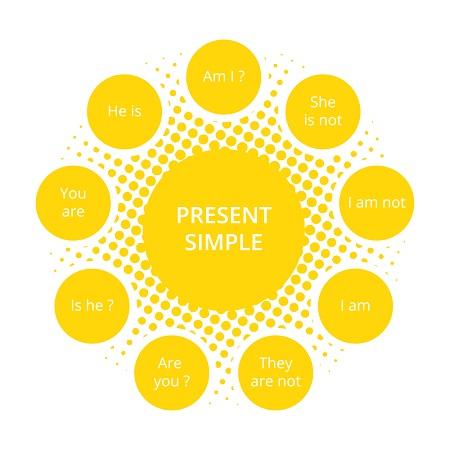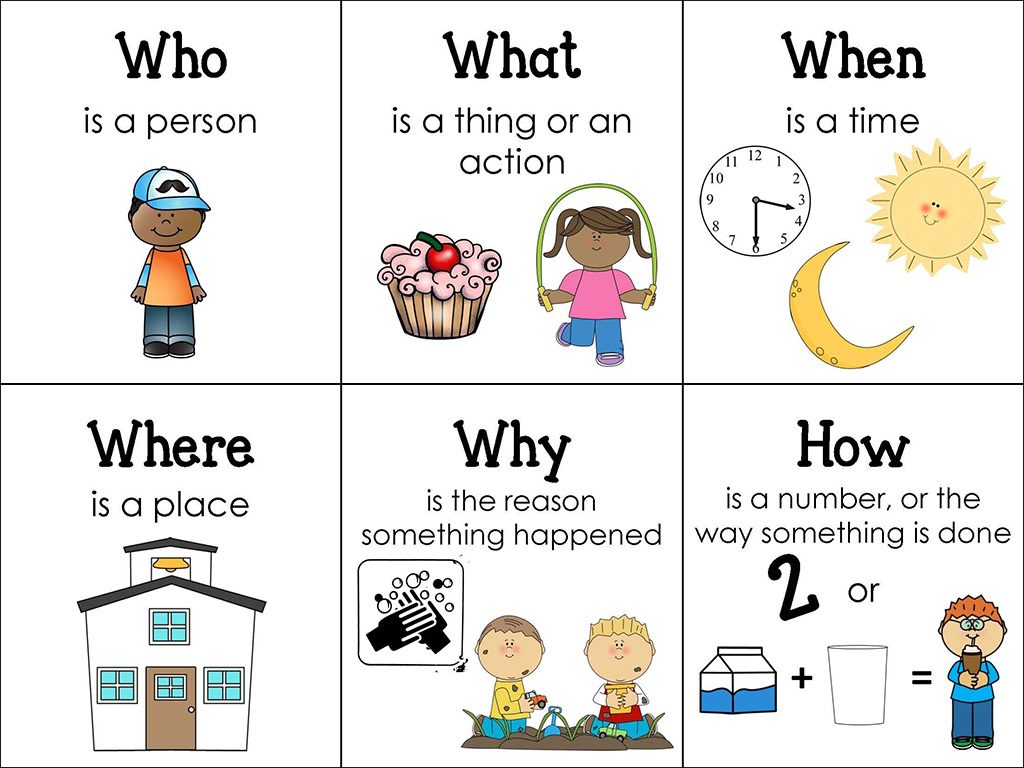Hãy nhập câu hỏi của bạn vào đây, nếu là tài khoản VIP, bạn sẽ được ưu tiên trả lời.

Thể | Động từ “tobe” | Động từ “thường” |
Khẳng định |
I + am He, She, It + is You, We, They + are E.g.1: I am a student. (Tôi là học sinh.) E.g.2: They are teachers. (Họ đều là giáo viên.) E.g.3: She is my mother. (Bà ấy là mẹ tôi.) |
I, You, We, They + V (nguyên thể) He, She, It + V (s/es) E.g.1: He always swim in the evening. (Anh ấy luôn đi bơi vào buổi tối.) E.g.2: Mei usually goes to bed at 11 p.m. (Mei thường đi ngủ vào lúc 11 giờ tối). E.g.3: Every Sunday we go to see my grandparents. (Chủ nhật hằng tuần chúng tôi thường đi thăm ông bà). |
Phủ định |
is not = isn’t ; are not = aren’t E.g.: She is not my friend. (Cô ấy không phải là bạn tôi.) |
do not = don’t does not = doesn’t E.g.: He doesn't work in a shop. (Anh ta không làm việc ở cửa tiệm.) |
Nghi vấn |
Q: Am/ Are/ Is (not) + S + ….? A: Yes, S + am/ are/ is. No, S + am not/ aren’t/ isn’t. E.g.: Are you a student? Yes, I am. / No, I am not.
Wh- + am/ are/ is (not) + S + ….? E.g.: a) What is this? (Đây là gì?) b) Where are you? (Bạn ở đâu thế?) |
Q: Do/ Does (not) + S + V(ng.thể)..? A: Yes, S + do/ does. No, S + don’t/ doesn’t. E.g.: Do you play tennis? Yes, I do. / No, I don’t.
Wh- + do/ does (not) + S + V(nguyên thể)….? E.g.: a) Where do you come from? (Bạn đến từ đâu?) b) What do you do? (Cậu làm nghề gì vậy?) |
2. Công thức thì hiện tại đơn (Simple present tense)
2.1 Thì hiện tại đơn với động từ “TO BE”
2.1.1 Thể khẳng định
Cấu trúc: S + am/ is/ are + N/ Adj
Trong đó: S (subject): Chủ ngữ
N/ Adj (Noun/ Adjective): Danh từ/ tính từ
Lưu ý: S = I + am
S = He/ She/ It + is
S = You/ We/ They + are
Ví dụ: – My father is a teacher. (Bố tôi là một giáo viên.)
- They are from Japan. (Họ đến từ Nhật Bản.)
- I am handsome. (Tôi đẹp trai.)
→ Ta thấy với chủ ngữ khác nhau động từ “to be” chia khác nhau.
2.1.2 Thể phủ định
Cấu trúc: S + am/ is/ are + not + N/ Adj
Lưu ý: “Am not” không có dạng viết tắt
Is not = Isn’t
Are not = Aren’t
Ví dụ: – I am not a bad student. (Tôi không phải một học sinh hư.)
- My litter sister isn’t tall. (Em gái tôi không cao.)
- You aren’t from Vietnam. (Bạn không đến từ Việt Nam.)
2.1.3 Thể nghi vấn
- Câu hỏi Yes/No question
Cấu trúc: Am/ Is/ Are + S (+ not) + N/ Adj?
Trả lời: Yes, S + am/ is/ are.
/ No, S + am/ is/ are + not.
Ví dụ: – Is she beautiful? (Cô ấy có đẹp không?)
Yes, she is./ No, she isn’t.
- Are they here? (Họ có ở đây không?)
Yes, they are./ No, they aren’t.
- Am I good enough? (Tớ có đủ tốt không?)
Yes, you are./ No, you aren’t.
- Câu hỏi WH- question
Cấu trúc: WH-word + am/ is/ are + S (+ not) +…?
Trả lời: S + am/ is/ are (+ not) +…
Ví dụ: – What is it? (Đây là cái gì?)
- Where am I? (Tôi đang ở đâu?)
- Who is that girl? (Cô gái đó là ai?)
Xoá bỏ cách học Tiếng Anh theo lối mòn, nhàm chán qua sách vở bằng phương pháp học TRỰC TUYẾN HIỆU QUẢ ngay tại đây

2.2 Thì hiện tại đơn với động từ thường
2.2.1 Thể khẳng định
Cấu trúc: S + V(s/ es) +…
Trong đó: S (subject): Chủ ngữ
V (verb): Động từ
Lưu ý: S = I/ You/ We/ They/ Danh từ số nhiều + ĐỘNG TỪ ở dạng NGUYÊN MẪU
S = He/ She/ It/ Danh từ số ít + ĐỘNG TỪ thêm “S” hoặc “ES”
Ví dụ: – I usually wake up early everyday. (Tôi thường xuyên dậy sớm mỗi ngày.)
→ Ở ví dụ này, chủ ngữ là “I” nên động từ chính “wake” ta để ở dạng nguyên mẫu không chia.
- He never watches television. (Anh ấy không bao giờ xem vô tuyến.)
→ Trong câu này, chủ ngữ là “He” nên động từ chính “watch” phải thêm “es”.
( Ta sẽ tìm hiểu về quy tắc thêm “S” hoặc “ES” vào sau động từ ở phần sau)
Để luyện tập kỹ hơn, hãy làm bài tập thì hiện tại đơn tại đây nhé.
2.2.2 Thể phủ định
Cấu trúc: S + do/ does + not + V(nguyên mẫu) +…
Ta có: Do not = don’t
Does not = doesn’t
Lưu ý: S = I/ We/ You/ They/ Danh từ số nhiều + do + not
S = He/ She/ It/ Danh từ số ít + does + not
Ví dụ: – I don’t go shopping regularly. (Tôi không đi mua sắm thường xuyên.)
→ Trong câu này, chủ ngữ là “I” nên ta mượn trợ động từ “do” + not, và động từ “go” theo sau ở dạng NGUYÊN MẪU.
- He doesn’t work on Sunday. (Anh ấy không làm việc vào chủ nhật.)
→ Ở ví dụ này, chủ ngữ là “He” nên ta mượn trợ động từ “does” + not, động từ “work” theo sau ở dạng NGUYÊN MẪU.
2.2.3 Thể nghi vấn
- Câu hỏi Yes/No question
Cấu trúc: Do/ Does (+ not) + S + V(nguyên mẫu) +…?
Trả lời: Yes, S + do/ does.
/ No, S + do/ does + not.
Ví dụ: – Do you eating pizza? (Bạn có thích ăn pizza không?)
Yes, I do./ No, I don’t.
→ Ở ví dụ này, chủ ngữ là “you” nên ta mượn trợ động từ “do”, động từ chính “” ở dạng nguyên mẫu.
- Does you mother have a sister? (Mẹ cậu có chị/em gái không?)
Yes, she does./ No, she doesn’t.
→ Trong câu này, chủ ngữ là “your mother” (tương ứng với ngôi “she”) nên ta mượn trợ động từ “Does” đứng trước chủ ngữ, động từ chính “have” ở dạng nguyên mẫu.
- Câu hỏi WH- question
Cấu trúc: WH-word + do/ does + S (+ not) + V(nguyên mẫu) +…?
Trả lời: S + V(s/ es) +…
Ví dụ: – What do you doing in your free time?(Bạn thích làm gì vào thời gian rảnh?)
- Where does she work? (Cô ấy làm việc ở đâu?)

Viết các câu sau ở thế khẳng định (+), phủ định (-) và nghi vấn (?)
1. (+) The girl often listens to pop music.
(?) __________Does the girl often listen to pop music?_______________________________
Điền do, don’t, does, doesn’t vào chỗ trống trong các câu sau
1. My mother likes chocolate, but she _____doesn’t ____biscuits.
2. ____do__the children wear your uniform at your school?
3. Lynn’s father watches badminton on TV, but he __doesn't____watch judo.

1.(-) I don't drink a lot of coffe
(?) Do you drink a lot of coffe ?
2. (-) I did not slept well last night
(?) Did you slept well last night
3.(-) They do not sit and talk about their school days
(?) Do they sit and talk about their school days ?
k K K
1.I drank a lot of coffee.
(-)I didn't drink a lot of coffee.
(?)Did you drink a lot of coffee?
2.I slept well last night.
(-)I didn't sleep well last night.
(?)Did you sleep well last night?
3.They sat and talked about their schooldays.
(-)They didn't sat and talk about their schooldays.
(?)Did they sat and talk about their schooldays?
Đúng thì k cho mk nha.

Oliver always has fun
- Oliver always doesn't have fun
? Does Oliver always have fun?
Tim and Pat uploadpictures
- Tim and Pat don't uploadpictures
? Do Tim and Pat unloadpicture
Maria sometimes fidies up their room
- Maria sometimes doesn't fidy up their room
? Does Maria sometimes fidy up their room?
He often buys new shoes
- He often doesn't buy new shoes
? Does he often buy new shoes?

Viết 5 câu khẳng định,5 câu phủ định,5 câu nghi vấn viết ở thì hiện tại 5 câu viết ở thì quá khứ đơn

*Present Simple:
1. He works on a farm.
2. My mother teaches at a secondary school.
3. She does her homework after meals.
4. Her aunt works at a hospital.
5. His brother studies at a college.
6. I don't like vegetables.
7. She doesn't study at primary.
8. His teacher doesn't teach Math.
9. They don't like homework.
10. We don't go to school on Sunday.
11. Does your aunt is a nurse?
12. What does she do?
13. Does your father like chicken?
14. What do they do after school?
15. How does he get to the bus stop?
* Past Simple:
1. She worked at the library.
2. He went swimming yesterday.
3. They didn't play football after school.
4. We did our homework 6 hours ago.
5. It was rain last week.

we use this pen to draw
phủ định = we don't use this pen to draw
nghi vấn = Do you use a pen to draw?
We dont use this pen to draw.
Do we use this pen to draw ?

Thì Hiện tại đơn nha
Sao bạn hỏi rồi tự trả lời thế